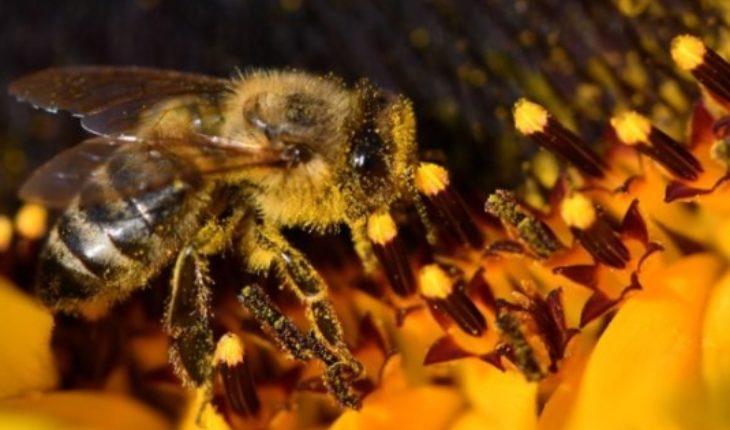Up to 400 million of these dead insects were accounted for in the state of Rio Grande do Sul alone. In four others, several beekeepers reported mass deaths.
Why would it be a catastrophe for bees to disappear and what can you do to prevent it?
Those investigating the causes point to pesticides used to kill pests as culprits and warn of the consequences of the deaths of these beings with such an important role in the food chain across the globe.
About a third of the food we eat today depends on pollination, which is mainly handled by bees. Some of the foods that depend on the action of this species of hymenoptera are fruits and vegetables such as avocados, broccoli and cherries.
What’s wrong with bees in Brazil?
The leading cause of death of these bees has been the use of pesticides containing products that are banned in Europe, such as neonicotinoids and fipronil.
Pesticides are used in agriculture around the world but can harm insects like beesThe European Union, for example, imposed a near-total ban on neonicotinoids in April last year because they can be very harmful to bees.
On the contrary, Brazil lifted pesticide restrictions that same year despite opposition from environmental groups that called it “poisoned measures”.
According to Greenpeace, the use of pesticides has increased. In three years they have accounted for the use of up to 193 products containing banned chemicals in much of Europe.
Brazil uses pesticides because its economy is heavily dependent on agriculture.
Brazil’s President Jair Bolsonaro has been criticized by environmental groups for lifting restrictions on the use of some insecticidesA global problem
But it is not only in Brazil that bees are in danger. The situation is spreading globally.
In the United States, beekeepers lost four out of 10 of their bee colonies in the past year, making the past the worst winter on record to date.
In Russia, 20 regions of the country also recorded massive bee deaths and authorities said this could mean a 20% decline in honey production.
In South Africa, at least one million bees died last November and the use of Fipronil was blamed for this.
Countries such as Canada, Mexico, Argentina and Turkey have also reported massive bee deaths over the past 18 months.
Bees play a crucial role in the process of pollinating plantsIs there any way to help them?
The environmental organization World Wildlife Foundation says that lands that are now not in use but were previously used for agriculture should be better preserved to safeguard bee populations.
They also ensure that when the land is urbanized, green spaces where bees can protect themselves must also be planned.
Some researchers say agriculture and gardening can encourage the proliferation of pollinating insects. Planting weeds and wildflowers on urbanized land can also have very positive effects, they point out.
But you can also help the bees if you have a garden. Growing in it plants and flowers encourages bees to pollinate, and letting the lawn grow longer also gives them more shelter.
What are the bees’ favorite flowers?
Why urban beekeeping has become so popular and what its benefits are
For tired bees, the wildlife organization Buglife says people should put them in flowers, where they can find the nectar with the nutrients they need.
And if you’re willing to help a little more, you can also create a small bee bath. Filling a small plate with water and stones will allow them to drink by leaning on the stones without risking drowning.
Many environmental groups such as Greenpeace And Friends of the Earth they say banning harmful pesticides is a vital step to prevent bees from dying.
translated from Spanish: Researchers explain why 500 million bees have died in Brazil in just 3 months
September 3, 2019 |





